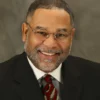
Topline
The College Board released the final framework for its hotly debated AP African American Studies course Wednesday, officially making content on Black Lives Matter and reparations optional while also including new coursework on redlining and NFL players’ kneeling during the National Anthem, as the organization continues to walk a political tightrope prompted by Florida officials’ rejection of the course earlier this year.
Key Facts
The course is divided into four required units covering a wide range of topics, but hot-button topics like the Black Lives Matter movement and the debate over reparations for slavery remain included as optional topics for teachers to cover in a flexible “Further Explorations” unit at the end of the course, which is set to roll out in schools for the 2024-2025 school year.
The Black Lives Matter movement and reparations were initially included as required lesson material in the first draft of the course’s curriculum, which was criticized by 2024 presidential hopeful and Florida Gov. Ron DeSantis earlier this year, but the topics became optional when the first official framework was released in February.
The final framework also leaves out coursework on the Black queer experience, which had been included in earlier drafts and was previously singled out by DeSantis.
But the new framework also includes material on “intersectionality” that was excluded from the February version—one of several exclusions that, at the time, prompted pushback from education advocates and Black scholars who believed the College Board caved to political pressure from conservatives like DeSantis.
The framework also introduces new required lessons on topics like redlining, white supremacist violence and Black arts and culture, and introduced new coursework on Colin Kaepernick and his controversial decision to kneel during the National Anthem in protest of police brutality in 2016.
The College Board has maintained throughout this process that its curriculum decisions have not been guided by politics, and in a statement Wednesday, insisted that, “amid intense public debate over this course, College Board asked subject-matter experts in the AP Program, scholars, and experienced AP teachers” to help mold the final framework.
Forbes has reached out to the Florida Department of Education for comment.
Key Background
After the College Board piloted the new African American Studies course with a draft framework earlier this year, the Florida education department announced in January the state would not be teaching the class in schools, claiming it was “inexplicably contrary to Florida law and significantly lacks educational value.” DeSantis would go on to criticize the course’s inclusion of topics like queer theory, the Black Lives Matter movement and reparations. In February, the College Board released a new framework that notably excluded Black queer theory, made teaching on the Black Lives Matter movement a suggested topic for an essay instead of a required teaching and excluded sources from several scholars who DeSantis had criticized. The framework ignited new criticisms from education advocates and Black scholars, who believed that the organization had caved to DeSantis’ political pressure. But the College Board denied this, telling media outlets key decisions about the framework had been made prior to DeSantis’ criticisms. The changes also did little to appease Florida officials—after its release, DeSantis hinted that Florida could cut ties with the College Board entirely. In April, the College Board vowed to revise the course again, promising “an unflinching encounter with the facts and evidence of African American history and culture.” Wednesday’s curriculum is the product of that revision. The battle over the AP African American Studies course was just one of several salvos in DeSantis’ war against what he considers “woke” educational programming. He’s previously sought to ban “Critical Race Theory” from schools with his 2022 Stop WOKE Act.
Big Number
More than 200. That’s how many colleges and universities the professors who worked on the new framework hailed from, according to the College Board. The College Board says that number includes “dozens of historically Black colleges and universities, along with dedicated high school teachers across the country.”
Crucial Quote
“This is the course I wish I had in high school,” said Dr. Brandi Waters, senior director and program manager of African American Studies in the Advanced Placement Program, in a statement.
Chief Critic
“Such a shame and disgrace that scholars allowed ideological bullies to prevail,” said Florida Democratic state Rep. Ashley Gantt on X Wednesday of the new framework, adding that the College Board lost its “credibility and academic integrity.”



